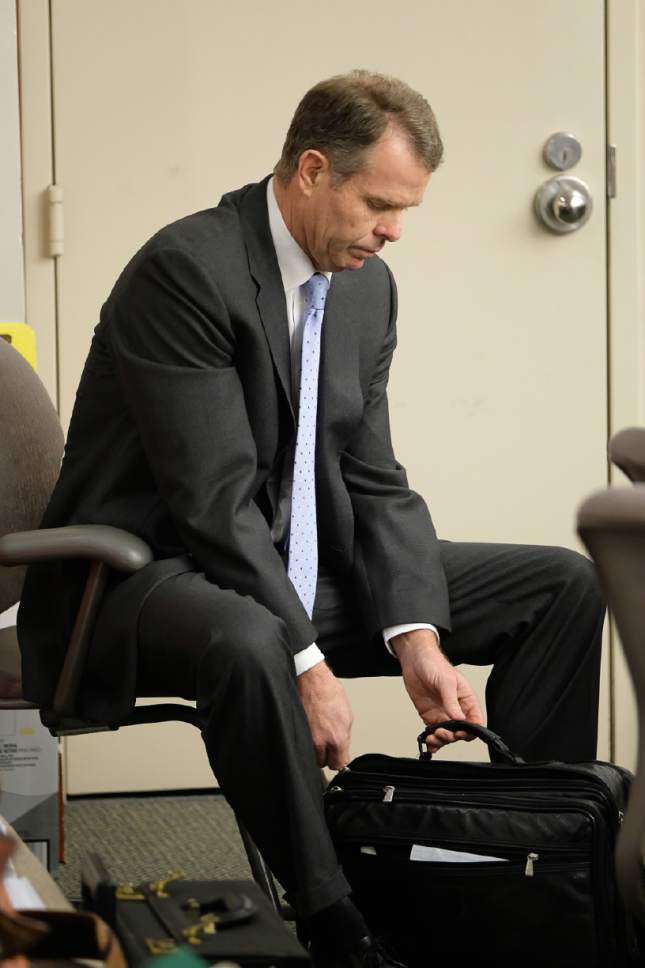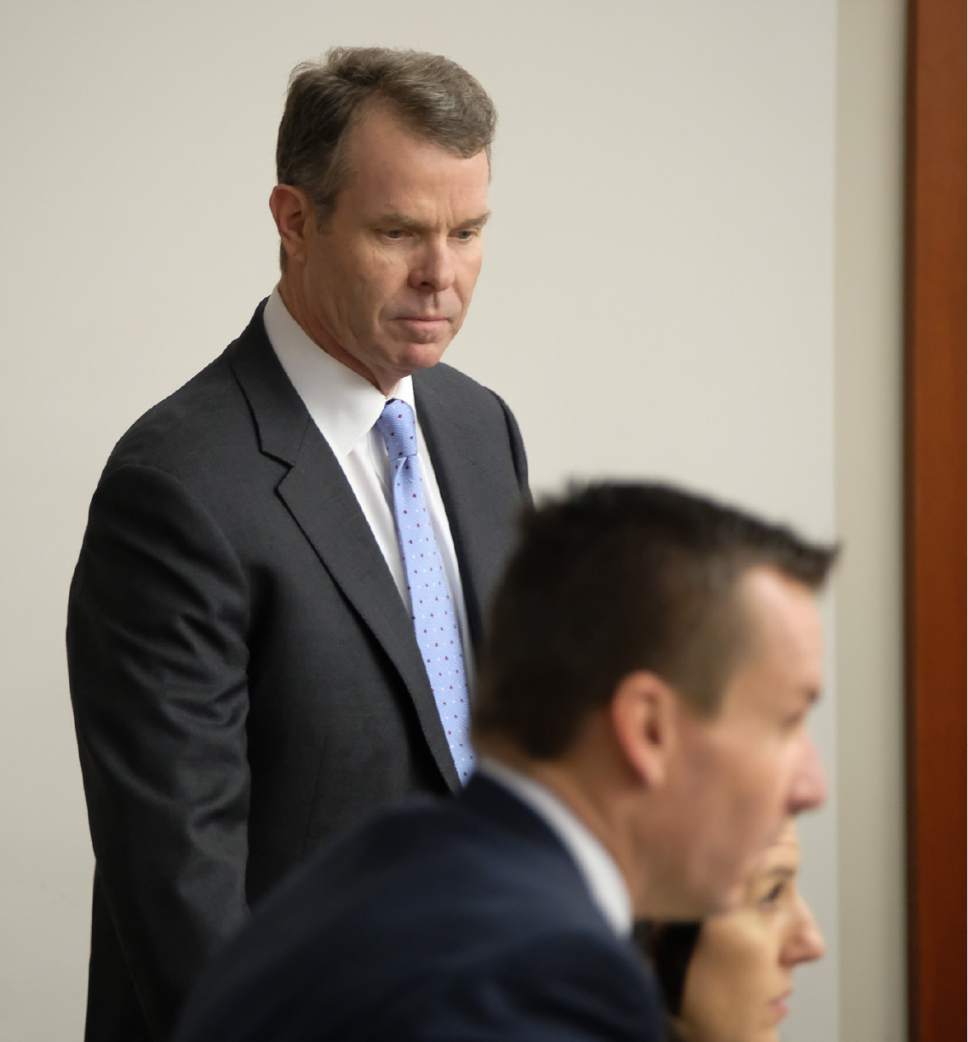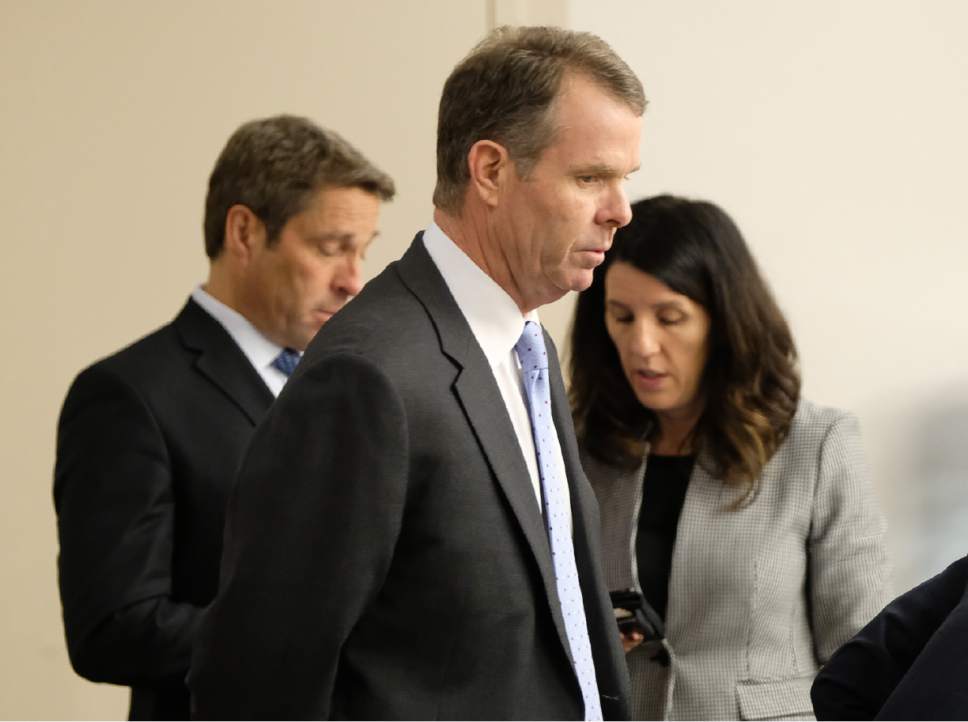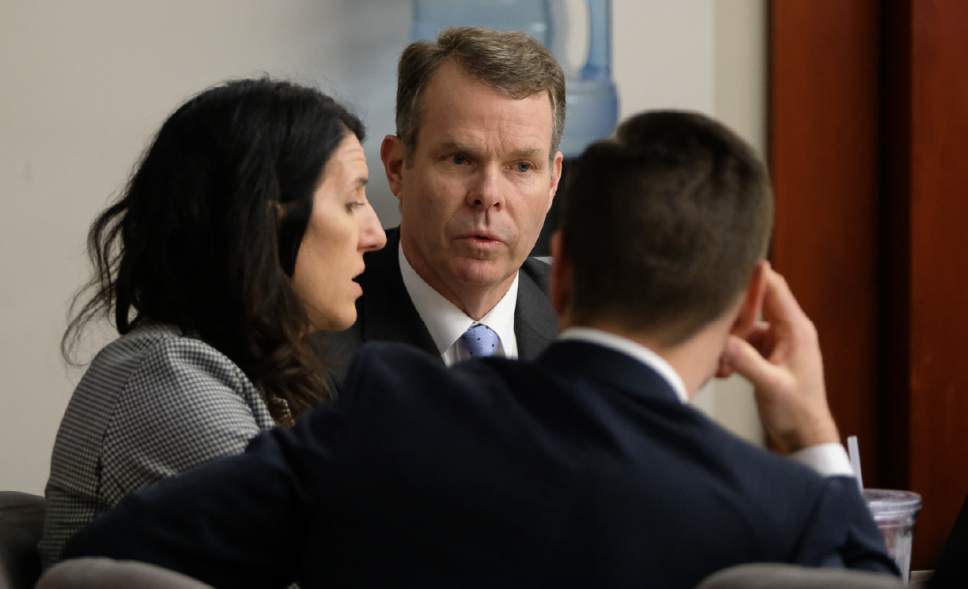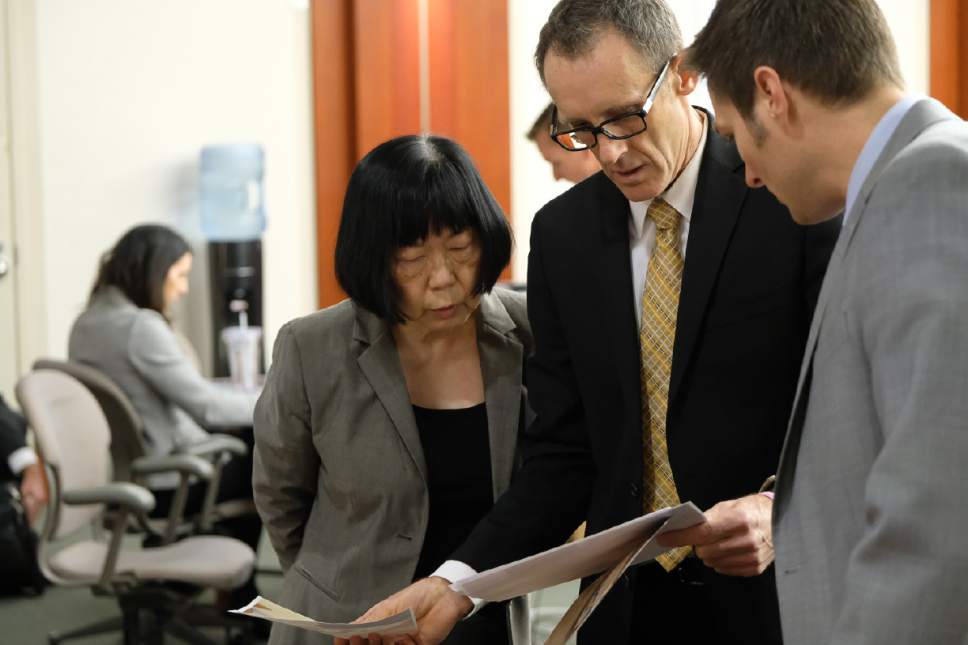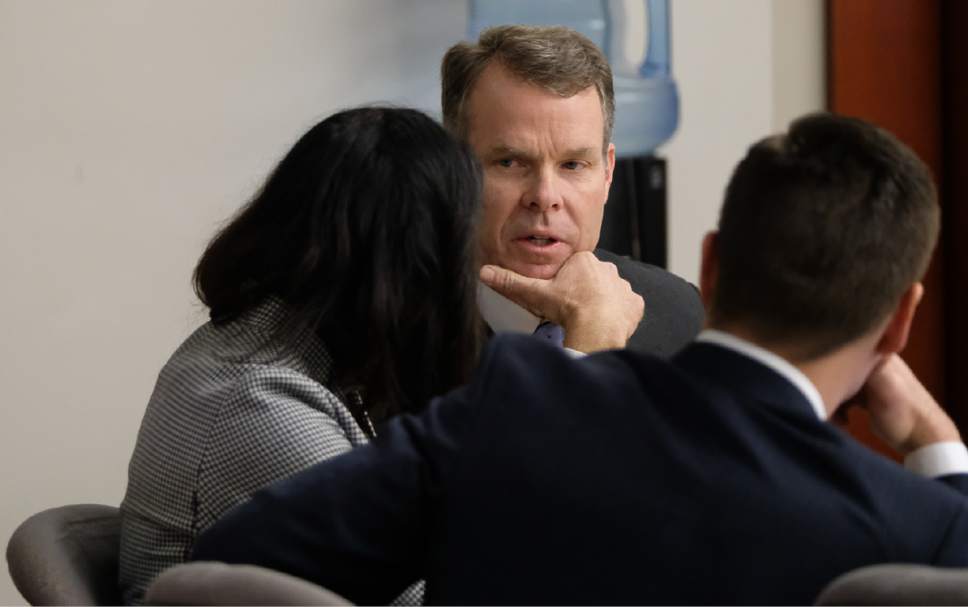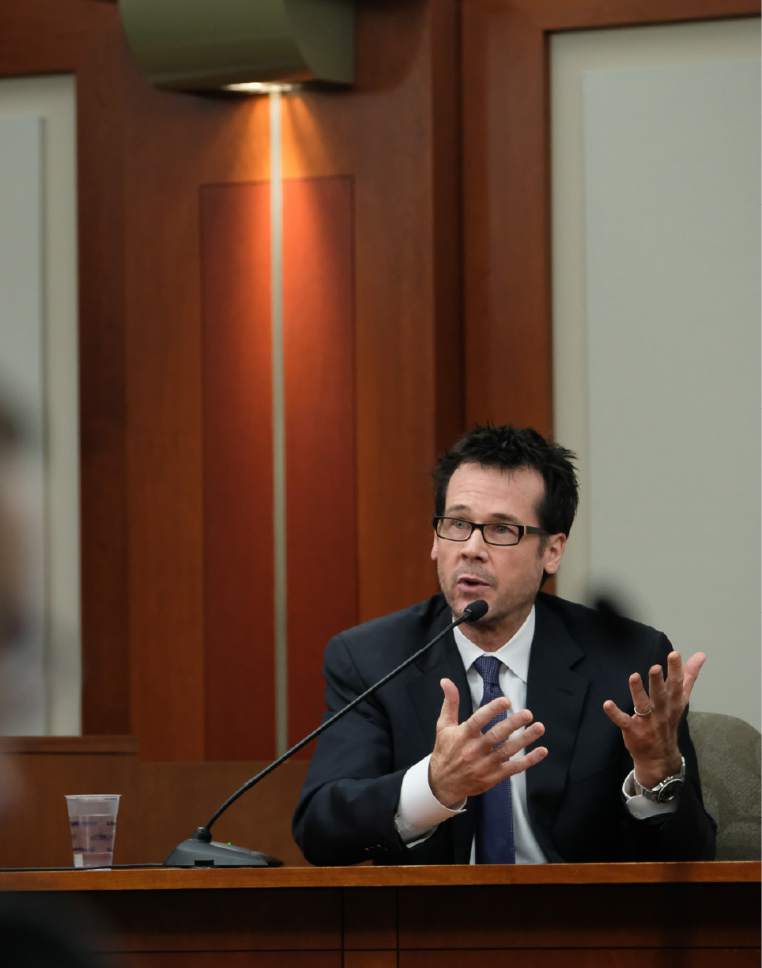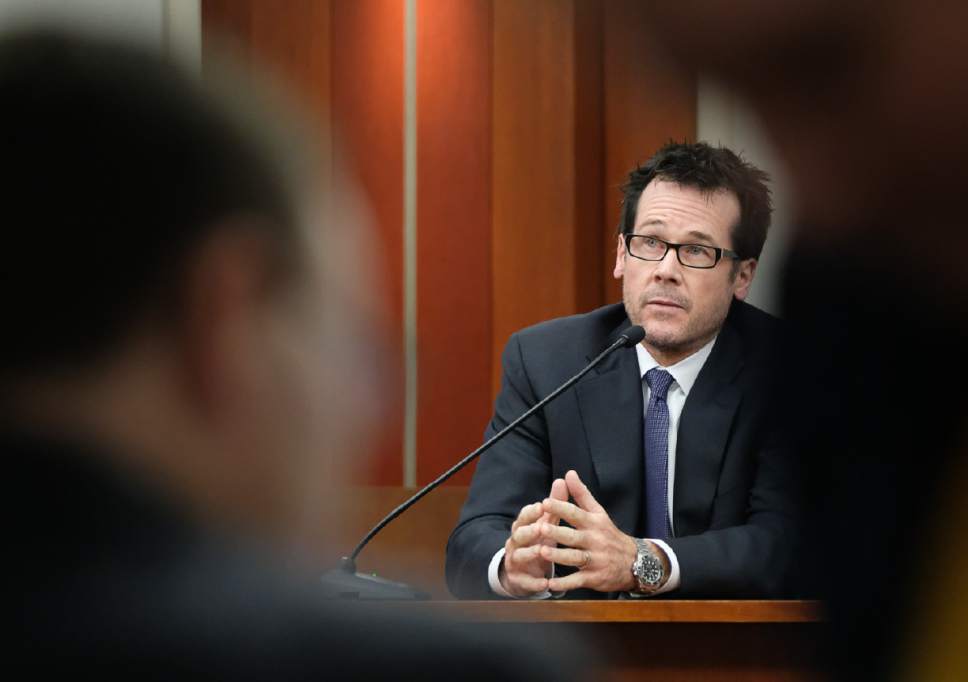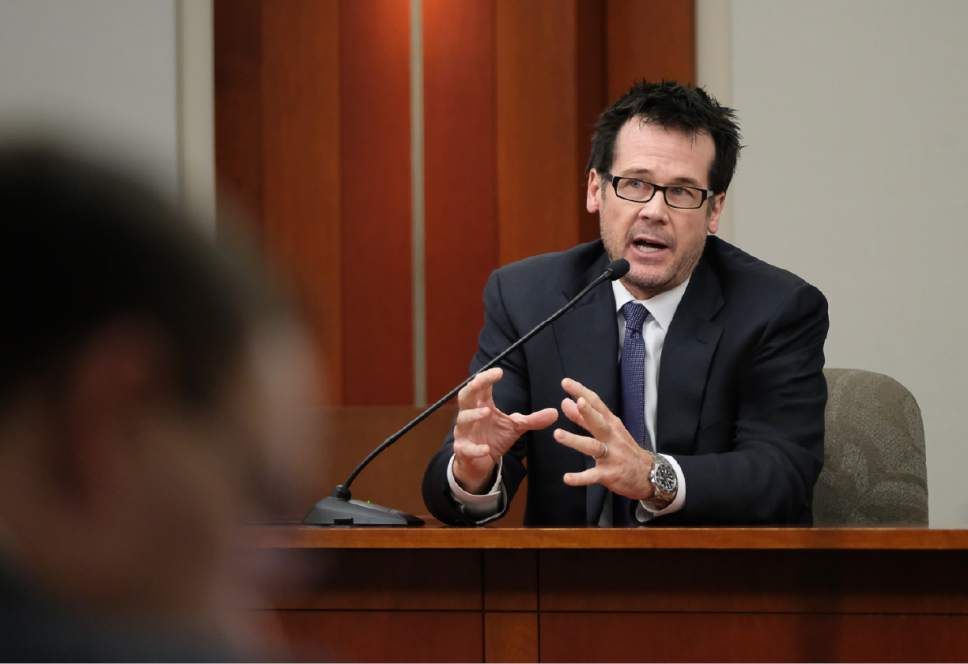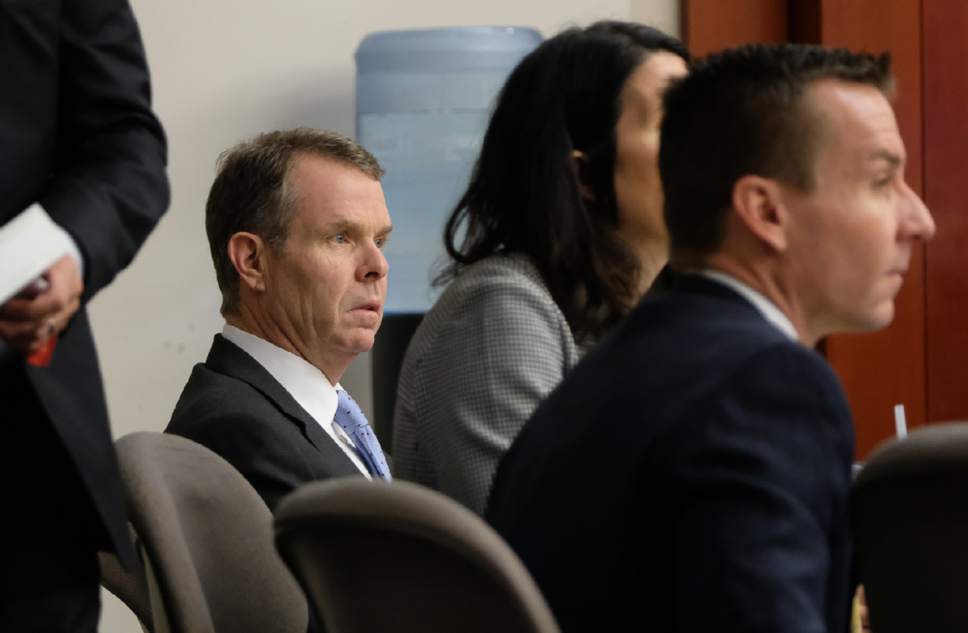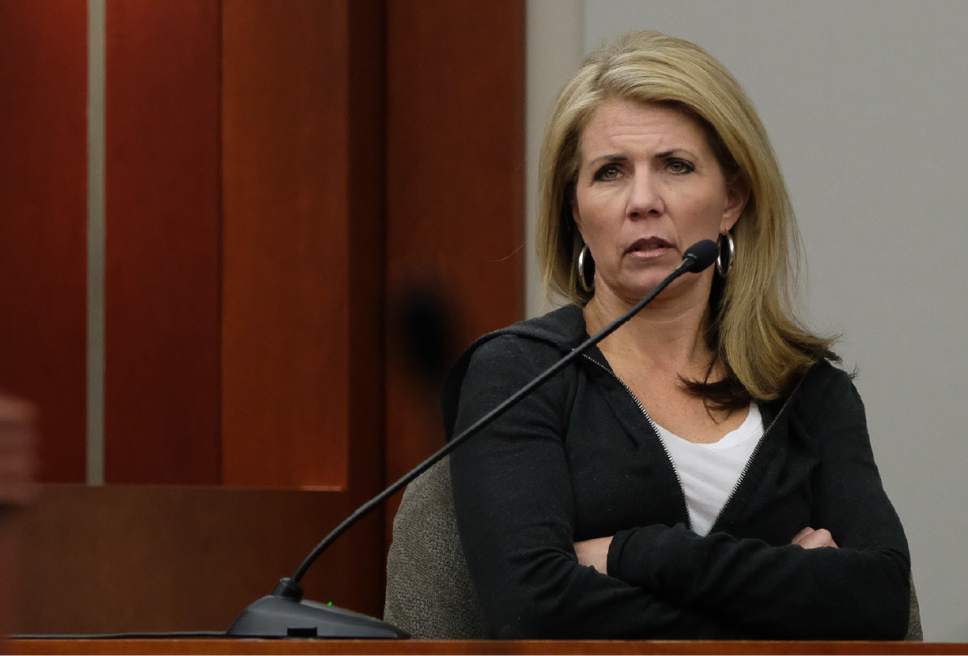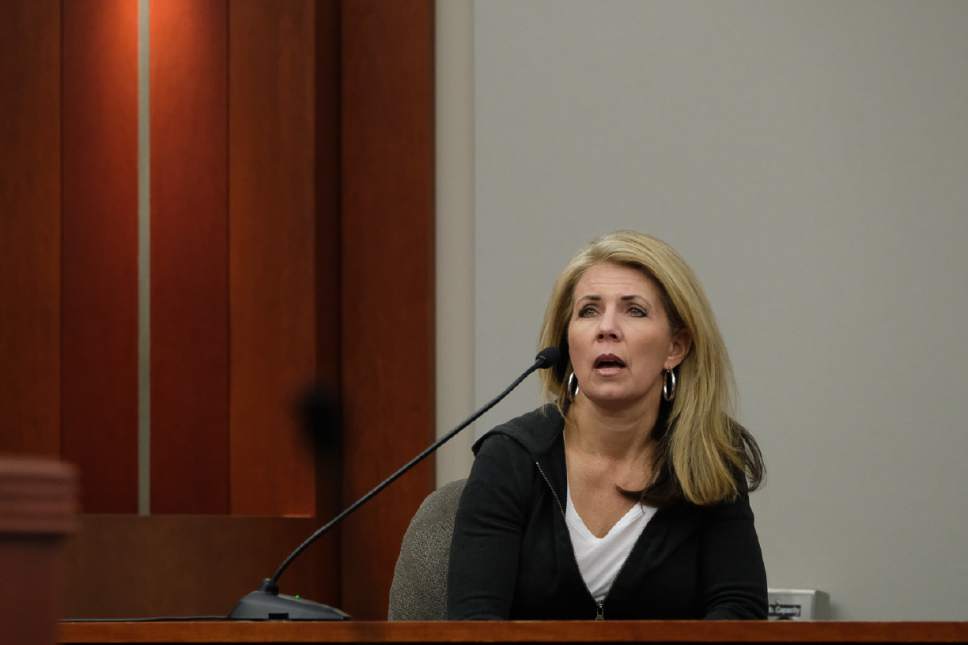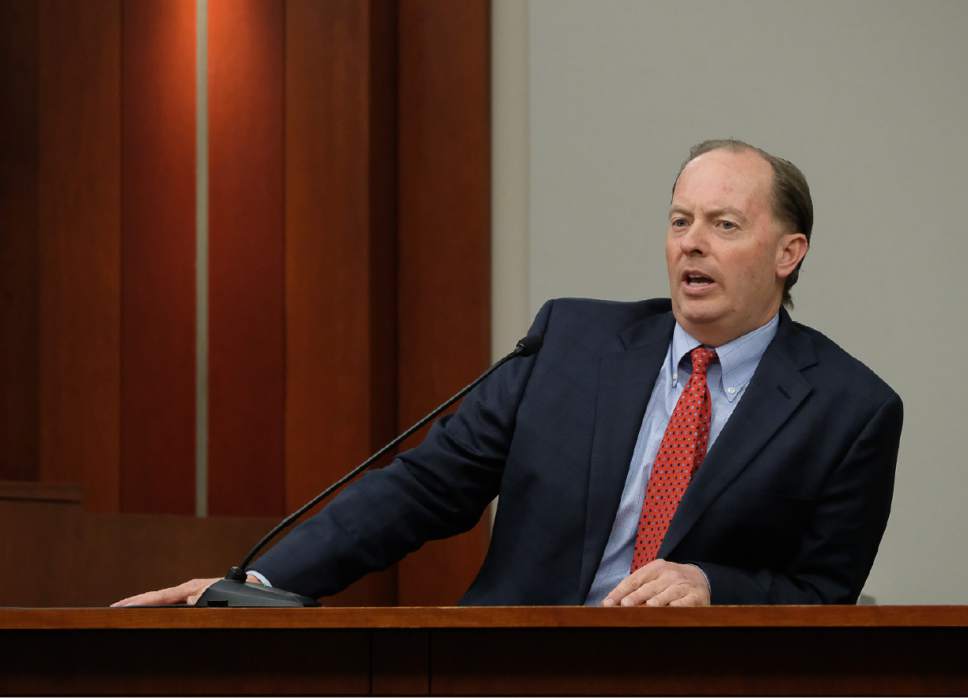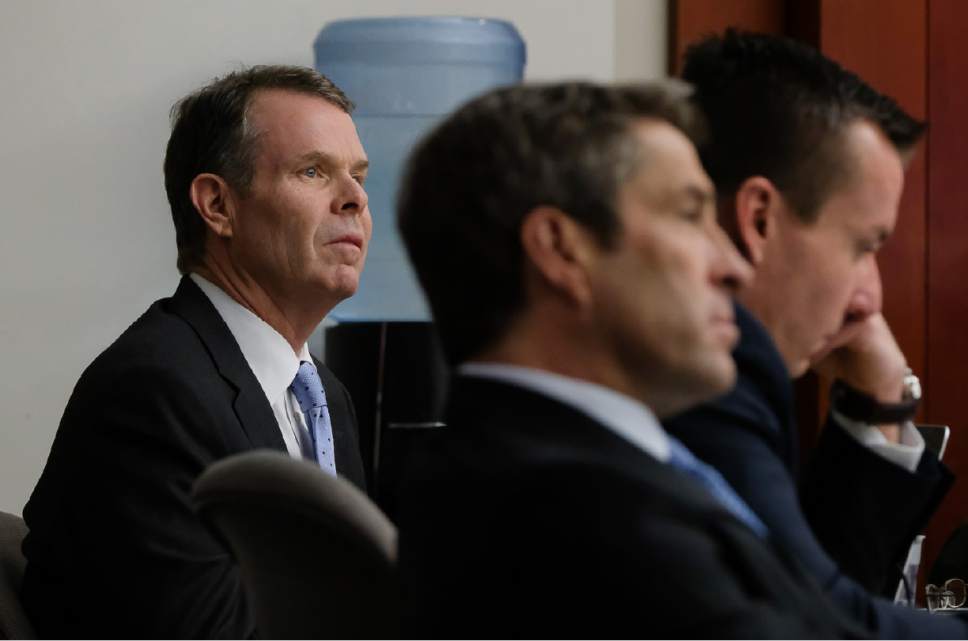This is an archived article that was published on sltrib.com in 2017, and information in the article may be outdated. It is provided only for personal research purposes and may not be reprinted.
The question of why the U.S. Department of Justice (DOJ) pulled the plug on its investigation of former Utah Attorneys General John Swallow and Mark Shurtleff came into Swallow's public-corruption trial Wednesday like an uninvited guest who refuses to leave.
Prosecutors had obtained a court order before the trial began barring attorneys from probing into why the DOJ's Public Integrity Section had backed off the investigation in 2013.
But on the witness stand during the trial's 10th day, FBI Special Agent Jon Isakson responded to a prosecution question with an explanation that hadn't surfaced before: "We asked them to."
Isakson told the jury that local FBI agents were concerned that deadlines were approaching for filing some charges, so they asked the DOJ to bow out so investigators could instead work with local prosecutors.
That drew Swallow's attorney Scott C. Williams into the fray, delaying the expected closure of the prosecutors' case. They are now expected to rest Thursday.
With the jury out of the courtroom, Williams reminded 3rd District Judge Elizabeth Hruby-Mills that testimony about the DOJ's decision had been specifically prohibited by her pretrial order at the request of Salt Lake County prosecutors, who had argued that the reasons for the feds' withdrawal were neither known nor relevant to Swallow's case.
Williams also said he believed Isakson's testimony amounted to perjury and argued he could prove that through defense witnesses.
Deputy District Attorney Fred Burmester tried to say the fault was in his question, not Isakson's answer, but when Williams pressed the issue, Hruby-Mills allowed more questioning of Isakson — again, with the jury out of the room.
In questions from prosecutors, Isakson said his knowledge about the DOJ's decision ends with what he'd already said.
"I only know that we told them we wanted to work with the state [prosecutors] on state charges," he said.
The agent's exchange with Williams was more of a jousting match, with Swallow's lawyer asking at length about the investigation and whether Isakson remembered that DOJ's pullback had been a long-running issue in both the Swallow and Shurtleff cases and was barred from testimony.
"I didn't know it was an issue in the moment I was on the stand," he said, adding that he answered only the question he had been asked.
Isakson said the FBI began investigating Swallow and Shurtleff as early as 2012, joined by the U.S. attorney's office for Utah and the DOJ. He said Davis County Attorney Troy Rawlings, whose prosecution of Shurtleff was dismissed last year, had an ongoing parallel probe that was joined in 2013 by Salt Lake County District Attorney Sim Gill.
The U.S. attorney's office for Utah left the investigation early in 2013, citing a conflict of interest. Then, Isakson said, local FBI agents became concerned that deadlines were rapidly approaching for filing federal charges against Shurtleff friend and "fixer" Timothy Lawson, who died last year.
With the FBI also coordinating with the state investigation, Isakson said agents asked the DOJ to decline prosecution to allow them to continue working toward charges with Rawlings and Gill.
Williams quizzed the agent on why he had never offered that explanation — to prosecutors or the court — when the DOJ's decision became an issue in the case.
"I don't remember them asking that specific question," he said.
Williams also asked Isakson whether he had been given permission to offer testimony about the DOJ's withdrawal, noting that a federal court case protects some information as private.
Isakson said he had been given permission to provide "general" testimony and knew that his statements about the DOJ's exit would be considered off limits.
Williams asked about an Aug. 27, 2013, phone call between FBI agents in Utah and DOJ Public Integrity Section attorney Edward Sullivan.
Isakson said the agents told Sullivan "we wanted to continue the investigation with the state authorities."
Williams pointed to a transcript of an interview with a witness in which another FBI agent seemed to contradict Isakson's explanation. She said that when DOJ pulled out, "we had nowhere to go, so we go to Sim Gill."
The same question of why the DOJ had withdrawn without filing charges had bedeviled Rawlings' prosecution of Shurtleff. He fought the federal government for months, stating in court papers he was obligated to provide an answer to Shurtleff's defense team, because it may contain information that would exonerate the three-time attorney general.
Also on Wednesday, the homeowner who hosted an August 2012 fundraiser for John Swallow testified that the then-candidate for attorney general was surprised to find out his host was a party in a foreclosure lawsuit the state had joined.
"I just remember surprise in Mr. Swallow's demeanor as it came up," Tim Bell said.
Bell and his wife sued Bank of America over the foreclosure of their home in 2011 and were offered a settlement in March 2012. The state joined the action on behalf of other Utahns, though Bell testified he was unaware of the state's intervention. The settlement offer occurred months before the Swallow fundraiser, but the deal didn't close until fall 2012.
The swanky fundraiser, which cost the Bells nearly $30,000, was considered an in-kind donation to Swallow's campaign. It popped up on the radar screen of prosecutors because the Bells' donation amount was amended — from $15,000 to $1,000 — at the request of the campaign in early 2013 and then again in 2014 back to $28,000.
Under cross-examination by the defense, Bell was asked if he knew that the prosecutors believe he attempted to bribe Swallow by hosting the fundraiser.
"I'm getting that idea," Bell said.
Asked if there was any truth to the assertion, the medical device distribution company owner gave an emphatic response: "None whatsoever."


